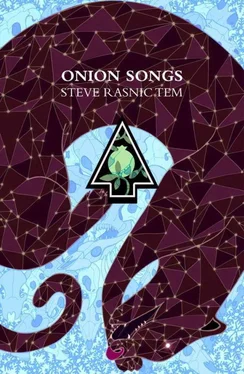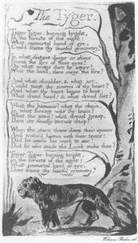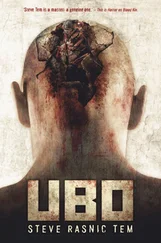He walks and walks with no destination in mind, with no name and its burden of past association to stop him.
“Bob!” The voice breaks through the back of his head. “Bob, is that you?”
The man who has no name turns and looks at the woman who has stopped in the middle of the sidewalk, her hands thrown up to her face as if in joy or grief.
“I thought I’d never see you again!” she cries, and runs toward him, throwing her arms around him. He flinches, but allows her to do what she feels she must do. The woman suddenly removes her arms and steps back. “What’s wrong?” she asks.
The nameless man does not think in terms of right or wrong and so says nothing.
“You act like you don’t even know me.”
The man without a name recognizes the fatigue in the woman’s eyes, which had been there every time he saw her. “Mary,” he says, knowing that isn’t the name of her secret heart—it is only the name she shares with others—but she has never shared her secret name with him so Mary is all he can use.
“Bob, you’ve been gone for months—is that all you have to say to me?”
He looks at her, wondering what he can possibly say to her, thinking he’d have to be a genius in order to know the right thing to say. “I wouldn’t want to hurt you,” he finally begins, telling her the truth. “Believe me, I would give anything not to hurt you. We could have been married—I know that’s what you wanted. Maybe I wanted it, too. Maybe I still want it. We could be married and I believe we would have had a successful marriage by the usual standards. No huge betrayals, no precipitous decline in affection, certainly none of the arguing that continues at a low burn for years before finally erupting into something more than painful and possibly dangerous. We would have had children and I’m sure we would have raised those children well.”
Somehow he thinks saying those things will in some small degree be comforting. But he has always been stupid in relationships, and he is being stupid now.
“Then why did you leave?” She is screaming at him. He doesn’t think he’s ever seen her screaming before. “You just threw it all away! There’s something wrong with you!”
“I’m not going to say that you’re incorrect about that.” He looks down, unable to look directly into those angry eyes. “But if we had married, whom would you have married? In our relatively short time together, how much did you really learn about me? How much would you have known after three years? Five years? How much do I even understand myself? I would try to be honest with you, but am I going to tell you things I think will make you dislike me?”
“So how is that different from any other relationship?”
“I don’t think it is. I don’t know. Is my ‘self’ anything more than a random accumulation of brain cells? These things that are me, are they anything more than accidental?”
“Bob…”
“You call me that name, but does it identify me any more precisely than any other? It’s a label my parents gave me, and the government finds convenient, like a label on a file so that you can find it among all the other files. But you can put anything you want into that file, can’t you? If I married you I would have been Bob with wife and kids and a house at a specific address in an all too specific neighborhood, working at any of a number of possible occupations, with benefits. I would have been well adjusted. I would have been happy. But I’m not at all sure it would have been right.”
She stares at him for a long time. When she leaves without saying anything more, he feels embarrassed, but relieved.
The nameless man returns to his hotel room and sits in an overstuffed chair the texture of battered skin. He has moved this chair to face the window so that he might have a fresh breeze on his face. He replays his conversation with Mary. He feels genuinely sorry that he has hurt her but he is anxious about something much more important right now: what if she tells others where to find him?
What if she finds some way to get in touch with his parents?
He has never seriously considered the possibility before. Once she asked to meet his parents and he told her he hadn’t spoken to them in years. Which was perfectly true. When she asked him about what had happened he told her it was too painful for him to talk about, but that someday they would. The first part of that statement had been basically true but even then he’d known he wouldn’t be around long enough for the second part. He’s already made a few too many mistakes with her, giving her his real first name and inadvertently revealing the state where he had been born (and where his parents, as far as he knows, still live). Those two items shouldn’t be enough to track down his history but who knew how many other slips he might have made? That’s what happened when you got close to someone. Perhaps she had just enough information, and perhaps she was angry enough, to contact his parents.
He tries to imagine the resulting conversation, the trading of stories, the bonding of these people who cannot fathom his odd behavior. Contemplating it makes him ill. He thinks about them visiting one another, trading pictures, hiring professional assistance. He knows he will need to leave this place sooner than planned, but perhaps there is still a way to buy himself more time.
He grabs the disposable cell phone he acquired when he first moved into this city and dials her cell number.
“Yes?”
“Mary, this is… Robert. Bob.”
“I thought you were done with me.” She’s been crying. She’s resentful. He hears cars, street sounds. She’s obviously outside. He thinks he can detect panting, footsteps. She’s walking somewhere. He thinks he’s in terrible jeopardy here.
“I’m so sorry,” he says to her, pleading. “Obviously I’m not a well-adjusted person. And you’ve been wonderful to me.”
“I don’t… don’t deserve this,” she says and a sob escapes. “Wait. Wait,” she says. “I’m crossing… wait.”
A loud car horn. A muffled impact. A rattle, a rattle, distorted voices. The phone goes dead.
He stares at his own phone, drops it onto the bed. Where was he? What was he thinking? He feels light-headed, nauseated. He leans over, stretches out on the bed. Certainly she’s all right. A near miss. She just dropped the phone.
Suddenly desperate for fresh air, he stumbles from the bed to the window, prying it open with trembling fingers. He sticks his head out into the air of the alley, clutching the sides of the frame, sure that he will fall.
The nameless man looks down and sees the creature feeding off the garbage pile below. Some sort of goat or dog—hard to tell, it is so emaciated, probably ill. Large patches of its coat have fallen out. Something odd about its head. A horn, so it is a goat. But only one. And that one distorted, broken, oozing narrow rivulets of pus. It turns its head around and smiles up at him with broken teeth, a piece of a rat wedged in its mouth.
A true unicorn , he thinks, not knowing why, but knowing it is so. That’s what they really look like . And now he knows Mary must certainly be dead. A vagrant wanders past the unicorn, neither apparently noticing the other. Mary is dead and he is at last forgotten, for now he knows his parents are dead, too. Because he is seeing unicorns the way they really are, raw and unglamorized. At last unknown, he has descended into the worlds of myth, of things unnamed and misnamed, of things unseen and things misunderstood. The grand consolation prize, he thinks, for anonymity.
* * *
When the unknown man goes out that evening it is only after reconsidering the events of the day until a certain sanity has been achieved. The delusion he had experienced was the direct result of the shock of Mary’s accident, or presumed accident. Presumed death. He could make some calls and find out for sure, but he knows he will not.
Читать дальше












